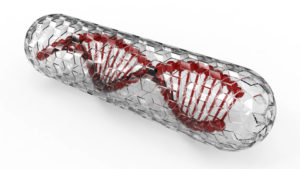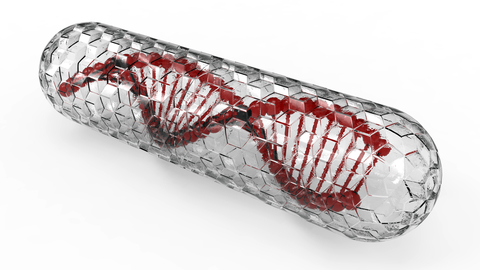Genetics – it seems complicated and mind boggling that a bunch of proteins (our DNA) control every aspect of our lives, and that one very small change in DNA can have far reaching consequences. It is unfortunately true. And science has not been able to change our DNA. We are stuck with what we are dealt at conception.
A new part of genetic investigations is the MTHFR gene variations. Why is this important? Because it is estimated that between 40-60% of the population have a variation in this gene. Chances, are, if you are reading this, you may have one. I have one, and so do many of my patients – hence my strong interest in this area.
What is it?
MTHFR stands for methylene-tetrahydrofolate reductase and it is a gene that makes an enzyme (of the same name). The enzyme adds a methyl group to a folate molecule (folate is vitamin B9). This methyl group activates folate vitamin for use in the body. In a nut shell, it makes the folate we eat, usable in our body. Having a variation in this gene down regulates the enzyme’s activity. It makes the enzyme slower to work, and thus less folate gets converted to the active form. It is like we should be running on a treadmill at speed 10, but with a down regulation it means we cant get higher than speed 6. The motor just isn’t fast enough. The consequence of this is that we can have a functional deficiency in folate even when we are eating high folate foods or taking supplements with folic acid.
Why is this important?
It just so happens that folate is a REALLY significant vitamin. It is involved in many, many reactions in the body.
- It is the main vitamin that helps make serotonin and dopamine in our body, which are key for our mental health (anxiety and depression).
- It is involved in the cardiovascular system, as folate helps to break down a protein called homocysteine. High levels of homocysteine are linked to cardiovascular disease, and stroke.
- Folate also helps to make glutathione which is an enzyme involved in detoxification.
- And of course we all know that folate is crucial in the early embryonic development of the neural tube of a foetus.
If you are deficient in folate, then the consequences are enormous for women who are trying to fall pregnant. The biggest thing I hear about in my work as a naturopath, is that many women with this gene have a history of multiple miscarriages (especially those which are unexplained). This gene variation can explain it. It can also impact on the development of the foetus into a healthy infant, with things like tongue tie and lip tie being very common when one of more of the parents have a MTHFR gene variation. (If you have had a successful pregnancy but the infant has either of these structural anomalies, I would advise getting yourself and partner tested for the gene variation before having any subsequent children)
To complicate matters further there are many things in modern life that deplete us of folate, or use up more folate in our body
- Toxins (BPA, pollution, pesticides)
- Chemicals and heavy metals
- Stress
- Aging
- Excessive exercise
- Medications
- Diet (particularly high wheat)**
- Alcohol
So why don’t you just give everyone more folate and the problem is solved. Unfortunately, it is not that simple.
Most supplements sold in Australia have folic acid as the form of folate, which is a synthetic form of folate and not very readily used in our body. To top it off, folic acid also blocks the absorption of active folate, so it can actually do harm in the body. What form do most pregnancy vitamins have? Folic acid. What do many health professionals say to women with this gene – “take more folic acid” not knowing that they are actually going to make the problem so much worse. There is a big difference between saying take more folic acid and take more folate. Only recently there have been supplements on the Australian market with activated folate in them. But these are hard to find without the help of your naturopath. The other thing to consider is that if you go too high with folate too quickly you can make the problem worse. It is best to work with someone who has extra training in this area.
So, what is the next step?
The first thing you need to do is to get a genetic test for the MTHFR gene variation. It is important to know what your profile is. For example: finding out if you are homozygous or heterozygous for the gene is important. This means whether you have 1 copy of the gene from one parent (heterozygous) or 2 copies (one from each parent). If you are heterozygous this down regulates the enzyme by about 40% and if you are homozygous it down regulates the enzyme by about 70% – a much larger consequence for possible deficiency and potentially a totally different treatment protocol.
To have this blood test you will need a referral from your doctor, and it will cost you about $60 out of pocket.
Once you are empowered with this information, you can find a practitioner such as myself who can help you navigate this genetic information, provide relevant dietary and lifestyle advice, and supplements to deal with any consequences of having this gene variation.
** all wheat products are unfortunately fortified with folic acid. You can read more about why we should eliminate wheat in another blog post
